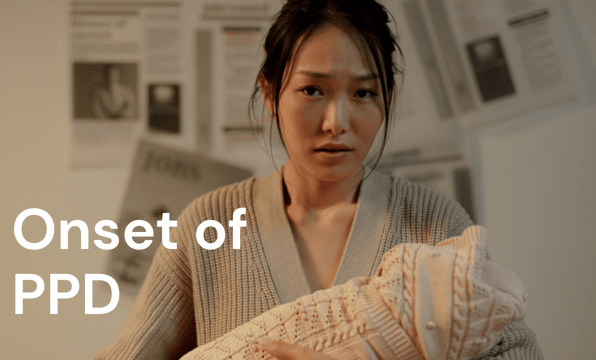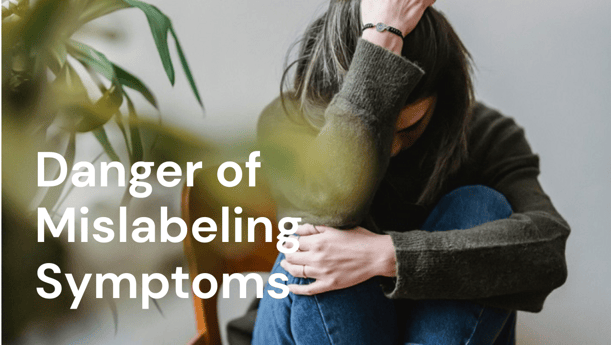Understanding PPD: When It Starts and How Long It Lasts
6/25/20254 min read
The arrival of a baby is a monumental life event, and the emotional waves that follow are just as intense. For many new parents, especially mothers, these emotional shifts can turn into something deeper—postpartum depression (PPD). But one of the most confusing aspects of PPD is its timeline. It doesn’t always follow a neat schedule. So, when does postpartum depression actually begin? And how long can it last?
At Peace Temple, we often hear new mothers ask, “Isn’t it too late for me to be feeling like this?” or “I was fine the first few months—why now?” The truth is, PPD is more flexible (and sneaky) than many realize. Understanding its onset and duration can offer both reassurance and clarity.


When Does Postpartum Depression Start?
Contrary to popular belief, PPD doesn’t always show up immediately after childbirth. While many people associate it with the early days or weeks postpartum, its onset can vary significantly.
Typical Onset: First 4 to 6 Weeks
The most common window for postpartum depression to begin is within the first 4 to 6 weeks after delivery. This period coincides with hormonal crashes, extreme sleep deprivation, and the overwhelming adjustment to new parenthood.
During this time, some mothers may write off their symptoms as “normal” or blame fatigue, but persistent sadness, emotional numbness, or anxiety can be early indicators of PPD.
Delayed Onset: Several Months Postpartum
In some cases, postpartum depression may not emerge until three to six months—or even up to a year—after childbirth. Triggers for delayed onset include:
Return to work
Relationship stress
Sleep debt accumulation
Weaning or hormonal changes
Lack of social support
This delayed form can catch people off guard, especially if they initially felt emotionally stable. Many mothers in our Peace Temple support programs say they were told PPD only happens right after birth—which left them feeling even more isolated when symptoms emerged later.
How Long Can Postpartum Depression Last?
Postpartum depression is not a fleeting mood swing. Without treatment, it can last for months—or even years.
Untreated PPD
If left unaddressed, PPD may persist beyond a year, evolving into chronic depression or anxiety disorders. Some studies show that untreated postpartum depression can linger for 2–3 years, particularly if external stressors (like relationship difficulties or financial instability) continue.
This long-term impact affects not just the parent but the entire family dynamic—including the baby’s development and emotional health.
With Treatment
The good news? With proper treatment—whether through therapy, medication, lifestyle adjustments, or a combination—most people begin to feel significantly better within 3 to 6 months.
At Peace Temple, our clients often report that simply being heard and validated by a professional speeds up recovery. Consistent therapy and compassionate care make a profound difference in reducing symptom duration and severity.
What About Recurrent Depression?
Another important aspect to note is that postpartum depression can recur in subsequent pregnancies or reappear as general depression later in life.
Individuals who’ve experienced PPD once have a 30–50% chance of experiencing it again. This doesn’t mean it’s inevitable—but it does mean that early monitoring and proactive mental health planning are crucial.
Our therapists at Peace Temple often work with women during pregnancy to develop emotional preparedness plans—especially if they’ve had prior episodes of PPD.


Why Timing Matters: The Danger of Mislabeling Symptoms
Many mothers endure months of suffering because they’re told it’s “just hormones” or the “normal stress of motherhood.” And while yes, new parenthood is hard, chronic sadness, emptiness, or anxiety that interferes with daily life is not normal—and deserves immediate attention.
Unfortunately, the variable onset of PPD often means it’s misdiagnosed or overlooked. A mother struggling at six months postpartum may not be asked about her mental health at pediatric checkups or by friends who assume she’s “adjusted by now.”
That’s why ongoing mental health screening is vital—not just in the first few weeks after birth, but throughout the entire first year and beyond.
Signs That PPD Might Be Lingering
Even months after childbirth, it’s worth asking: Am I feeling like myself again?
Here are signs that postpartum depression may still be present—or worsening:
Persistent sadness or mood swings
Low energy or motivation, even with adequate sleep
Loss of interest in things once enjoyed
Irritability or anger without clear cause
Feelings of inadequacy or hopelessness
Difficulty bonding with your baby
Excessive guilt, shame, or anxiety
Thoughts of self-harm or wishing to disappear
If any of these symptoms have lasted more than two weeks, it’s time to talk to someone. Peace Temple’s therapists are trained to listen without judgment and help create a path to healing.
How to Support Someone with PPD—No Matter When It Starts
If someone you love is showing signs of PPD months after childbirth, don’t assume they’re “past it” just because the baby is older. Here’s how to help:
Acknowledge their emotions without minimizing them
Encourage professional support, such as counselling or therapy
Offer practical help, like babysitting or meal prep
Check in consistently, not just in the new born phase
Be patient—recovery is a process, not a one-time fix
Remember, postpartum depression can show up late, but early compassion always helps.
Final Thoughts: There Is No Expiration Date on Mental Health
One of the most important things to remember about postpartum depression is this: it has no fixed start or end date. It can arrive quietly, months after the initial chaos of delivery has passed. It can linger in the background, subtly draining energy and joy. And it doesn’t always announce itself with sobbing or breakdowns—sometimes, it just looks like emotional flatness or constant worry.
At Peace Temple, we believe that whenever postpartum depression begins, it deserves to be acknowledged, supported, and treated with care. You are not “too late.” You are not overreacting. You are not alone.
Healing can begin at any time.
